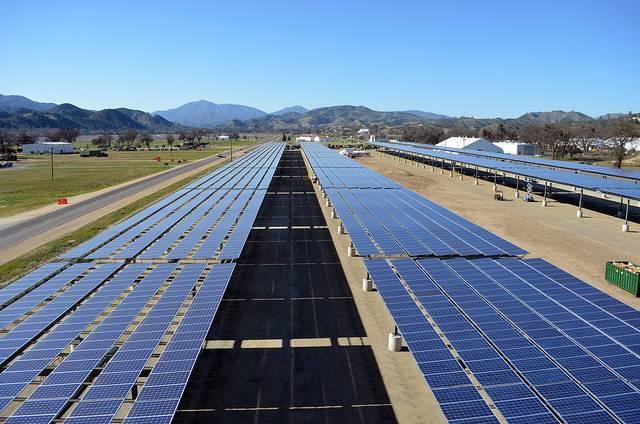
Shortly after President Trump was inaugurated, Republican elders including George Shultz and James Baker presented the White House with a revenue neutral carbon tax proposal. In a nutshell, the idea is to eliminate redundant CO2 regulations, including the Clean Power Plan, enacted during the Obama Administration. Instead, carbon would be taxed, starting at $40 a ton at energy-intensive locations such as ports, mines and refiners. That money in turn would be redistributed amongst U.S. citizens and some businesses – a family of four, for example, would receive about $2,000 annually under such a plan.
The proposal did not go too far, as the White House was distracted with a bevy of other policy agendas on which it preferred to focus. Plus, any proposal linked to taxes or climate change has long been anathema to GOP orthodoxy. But the concept refuses to go away. Vermont is mulling ideas for a statewide carbon tax; the “father of climate change,” former NASA scientist James Hansen, also has expressed support for the GOP proposal.
Furthermore, with the Republicans unable to pass meaningful legislation this year despite controlling both the White House and Congress – not to mention the GOP’s cratering popularity with voters as the midterm elections lurk on the calendar - the idea of a carbon tax is slowly but surely gaining more support across the political spectrum. In addition to energy companies such as ExxonMobil, Shell and Chevron, companies such as Johnson & Johnson, General Motors (GM), PepsiCo and Unilever support the idea. And those companies have allies in NGOs, including the World Resources Institute and The Nature Conservancy.
As Charles Komanoff of the Carbon Tax Center recently explained, the GOP’s rigid stance on climate change is untenable as more Americans describe climate change as an issue highly important to them personally. To that end, change is underway as some of former President Obama’s environmental legacy cannot be entirely dismantled, no matter how fast the Trump White House moves. After all, the country generates power much more differently than it did a decade ago. Despite the howls of protest over the Trump Administration’s decision to neuter the Clean Power Plan, about 80 percent of its goals have been achieved as natural gas and renewables displaced coal as the means to electrify homes and businesses across the country.
A carbon tax could also benefit from the horse trading that is certain to unfold this fall as Congress seeks to show it can get things done with a tax reform bill. Progress on simplifying the onerous federal tax code, while lowering the corporate tax rate, will be difficult for both houses of Congress to attain. One reason is that any plan to develop a border adjustment tax (BAT) on imports has fallen by the wayside. That tax could have generated a trillion dollars over the next 10 years by some estimates, but enough lawmakers were in no mood to promote anything smacking of protectionist legislation.
Joe Kennedy, a former economist at the U.S. Department of Commerce, has suggested a carbon tax could fill in the gap left by the elimination of any BAT. Leveraging a carbon tax to allow for a decrease in the corporate tax rate means such a levy would no longer be revenue-neutral, but if the Congressional Budget Office verifies that such a fee would reduce emissions, this plan could still muster support.
Any carbon tax would obviously require bipartisanship, which nowadays has become an endangered species on Capitol Hill and Pennsylvania Avenue. Two Democratic senators recently floated a revenue-neutral carbon tax that would levy $49 per ton of carbon. So far not one GOP lawmaker has taken the bait; some Republican representatives have filed a non-binding resolution calling for “market-based” climate change solutions, but they otherwise have failed to move the needle.
Unfortunately, Republicans who personally believe something could be done about climate change, but feel hamstrung by their party, have plenty of reasons to be spooked. In California, for example, the extension of the state’s cap-and-trade program recently passed with some GOP support. But many GOP leaders, along with the rank-and-file, have pilloried Assembly Minority Leader Chad Mayes for supporting and celebrating that legislation. Mayes is already facing an opponent in next year’s primary due to his support of what opponents of cap-and-trade describe as a “tax scheme.”
Image credit: U.S. Army Corps of Engineers/Flickr

Leon Kaye has written for 3p since 2010 and become executive editor in 2018. His previous work includes writing for the Guardian as well as other online and print publications. In addition, he's worked in sales executive roles within technology and financial research companies, as well as for a public relations firm, for which he consulted with one of the globe’s leading sustainability initiatives. Currently living in Central California, he’s traveled to 70-plus countries and has lived and worked in South Korea, the United Arab Emirates and Uruguay.
Leon’s an alum of Fresno State, the University of Maryland, Baltimore County and the University of Southern California's Marshall Business School. He enjoys traveling abroad as well as exploring California’s Central Coast and the Sierra Nevadas.














